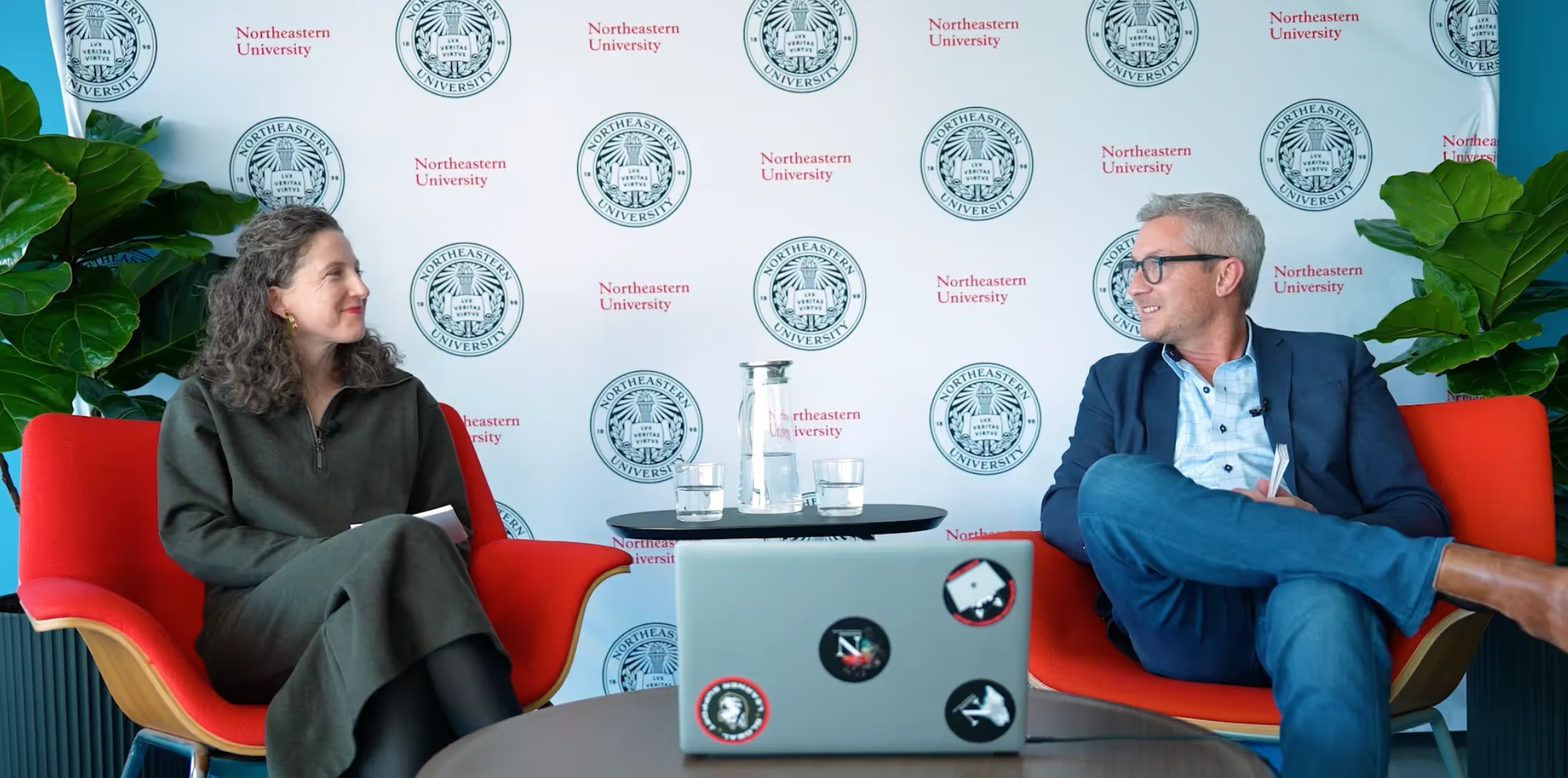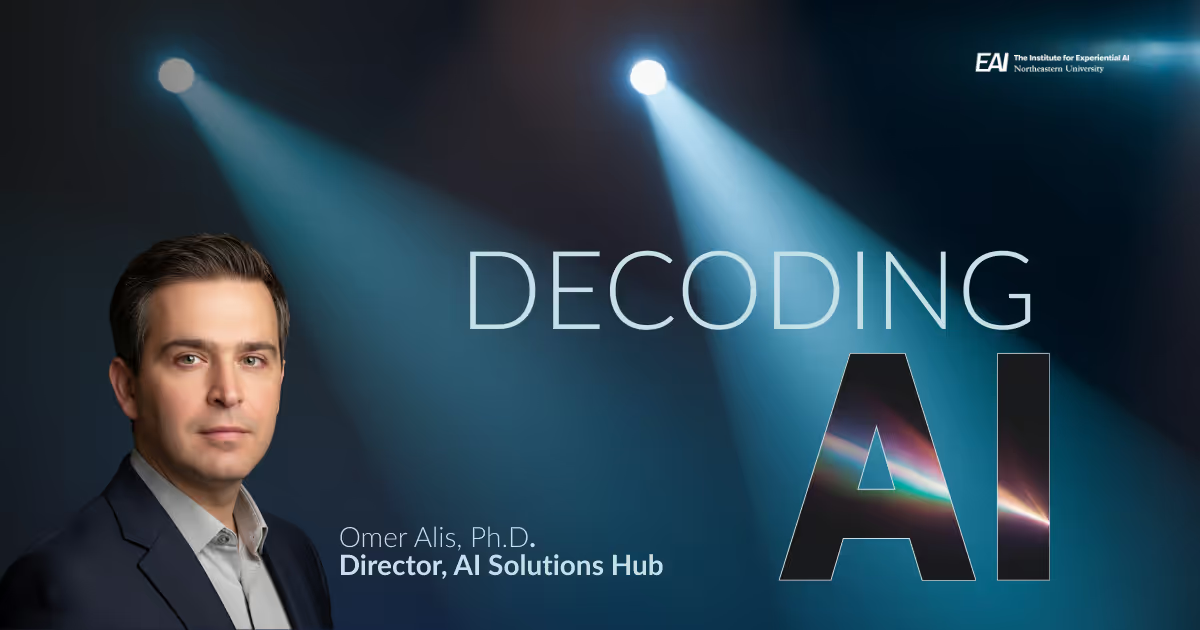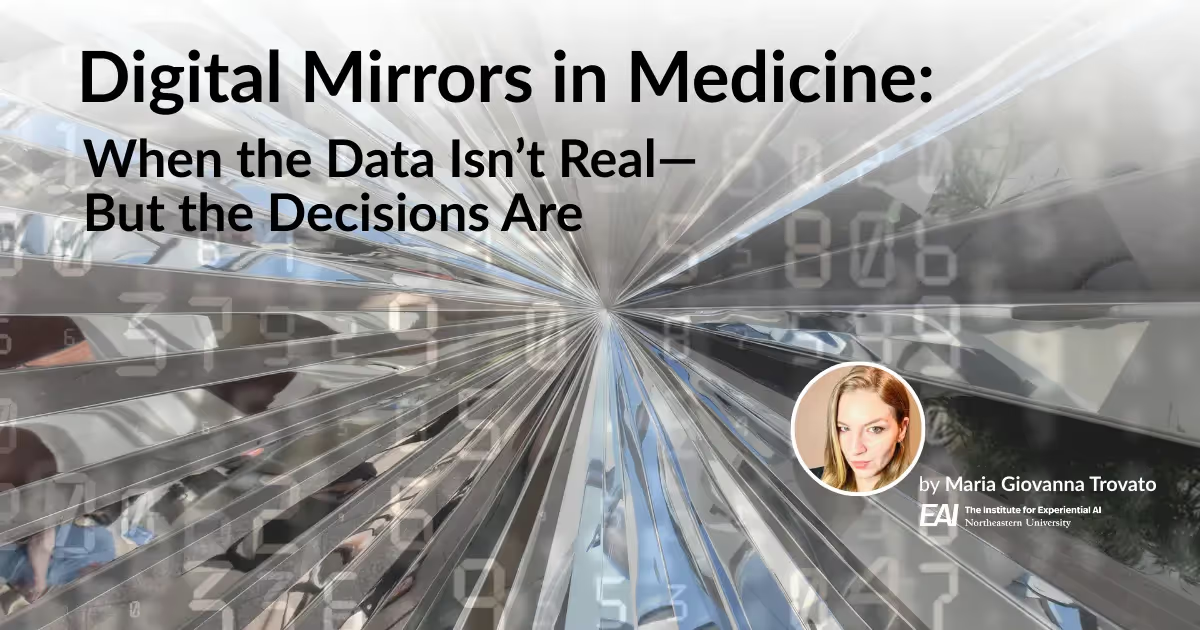AI and the Workforce of the Future

Two things can be true: AI is shaping the future of work, and work is shaping the future of AI. With that basic idea in mind, two Northeastern University leaders sat down to answer questions and discuss the realities of AI in today’s ever-changing work environment.
Liz Kohler is the managing director of strategy, operations, and growth at Northeastern’s Roux Institute, and Tim Weidinger is the director of business development at the Institute for Experiential AI. The two answered an array of attendee questions, sharing learnings and insights in fostering AI-driven solutions for students and organizations.
.avif)
Question No. 1: How do you see AI impacting daily work and decision-making processes in the next few years?
Responsible AI will become a bigger part of how AI functions in the enterprise. “It’s about taking people with all kinds of backgrounds to make what we want to see a reality, which is the responsible use of AI,” Kohler said.
She added that employers increasingly expect new hires to understand AI fundamentals and data literacy, even if they don't specialize in these areas. Knowing the basics can help users better interpret AI recommendations and, perhaps more importantly, to recognize flaws. In that sense, AI literacy has to be paired with critical thinking and communication skills. For those pursuing a career, she argued, it is not enough to merely pursue a four-year degree, as ongoing upskilling and learning are crucial in a rapidly evolving technological landscape.
Question No. 2: What have you found to be the best strategy for company-wide adoption of AI?
Key to any technology adoption is an understanding of not only what the technology is, but how it can benefit operations. Agreeing with Kohler’s assessment, Weidinger stressed the importance of foundational knowledge, especially with the emergence of transformational tools like ChatGPT. He argued that while AI can enhance a programmer's capabilities, it cannot replace the need for a solid understanding of data and technology.
“What our message is at the Institute for Experiential AI is, [AI] makes good programmers great, and it makes great programmers even better,” he said. Like Kohler, he stressed the need for professionals who can assess AI outputs critically, ensuring the accuracy and relevance of generated information. Traditional education alone, he said, might no longer suffice for long-term career development; continuous learning is the future.
For example, Kohler discussed how Northeastern’s Roux Institute collaborates with companies like Bangor Savings Bank to help navigate AI adoption. She shared how the regional bank, realizing it wasn’t prepared to fully integrate AI, partnered with experts at the Roux to upskill its workforce, focusing on AI fluency and data literacy.
“They recognized they needed to understand from their own organization, how are folks feeling about AI?” she said. “Are they worried about their jobs?”
The project involved educating not just the technical staff but also company leadership, ensuring that all employees understand how AI can be applied responsibly within the organization.

Question No. 3: How do you change a company culture that’s resistant to change and explore and adopt AI in operations?
It’s important to recognize people’s fears, even if they may be unfounded. Both Kohler and Weidinger cited Usama Fayyad, executive director of the Institute for Experiential AI, who often says AI will not take your job, but a human using AI will.
Weidinger also stressed the importance of strategic thinking, especially when considering whether to build or buy AI solutions. Successful AI implementation is about more than just acquiring tools; it’s about training employees to use them responsibly and effectively. Businesses must be mindful of their data.
"Your data is your DNA," Weidinger said. You have to approach AI with a sense of responsibility to avoid legal and ethical pitfalls. To remain competitive, organizations will have to foster a culture of learning and adaptation, ensuring that all employees understand and embrace AI in their roles.
Question No. 4: How is AI going to impact education, and how is education going to impact AI?
Just as in the workplace, skills and attributes that are uniquely human—creativity, emotional intelligence, critical thinking, common sense reasoning—will be favored in the classroom.
Kohler also explored how AI can enhance educational practices by facilitating scenario-based learning but emphasized that human qualities like creativity and problem-solving will always be irreplaceable. “The future of education is going to rest on, can we actually find a ground truth? Can we actually agree on reliable sources?”
Both Kohler and Weidinger agreed that AI’s role in education should complement human capabilities rather than replace them. The Northeastern model of experiential learning is especially suited for the future, as it blends AI tools with collaborative, problem-solving approaches. It’s a mutually beneficial arrangement: Organizations benefit from cutting-edge research with Co-op learners embedded in their operations, and learners benefit from real-world experiences. What better way to prepare students and workforces for the future?
Learn more about the Roux Institute’s partnerships program and how the Institute for Experiential AI works with companies to build unique AI solutions.


.avif)

